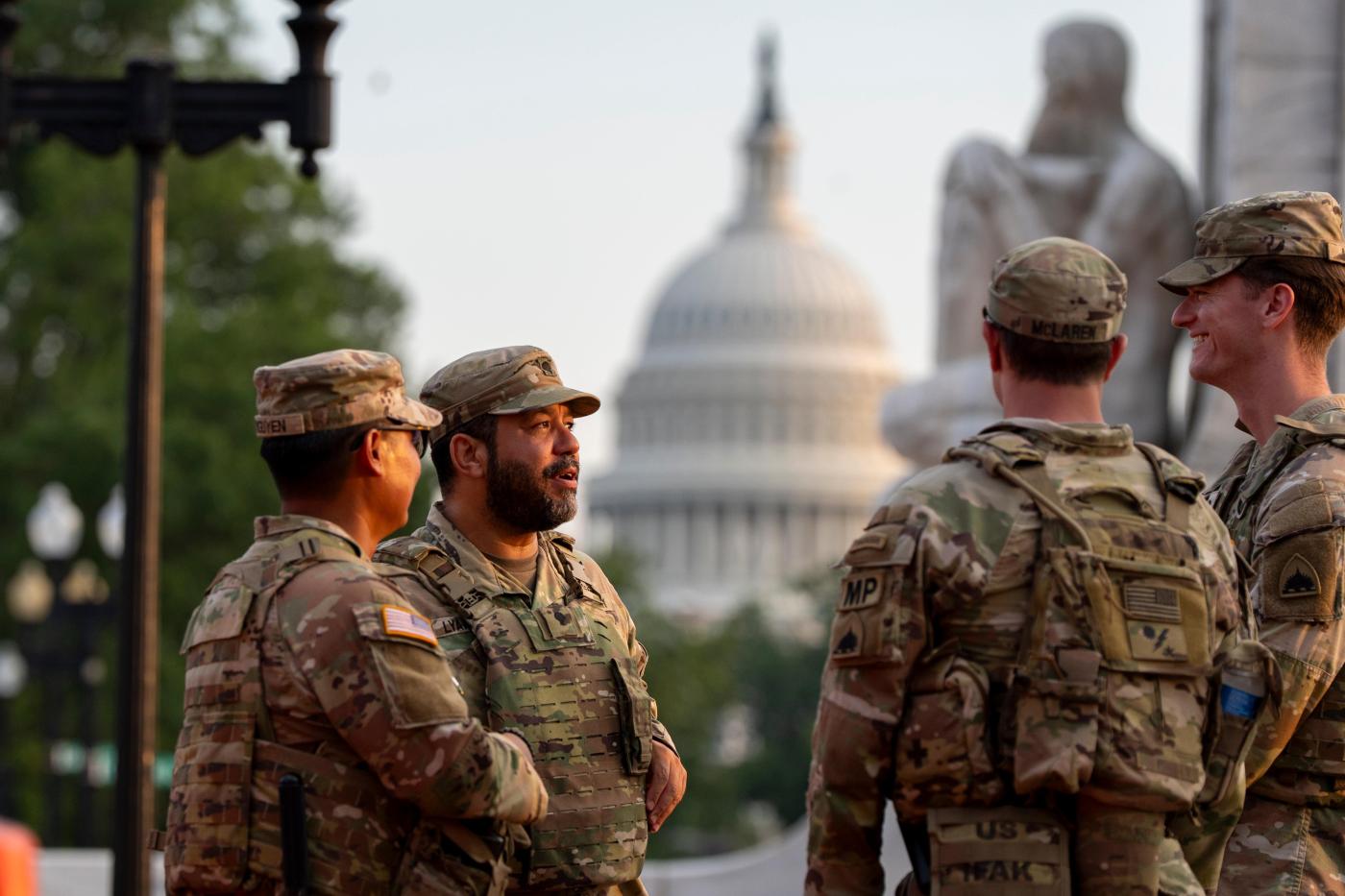At a recent event at Politics & Prose bookstore in Washington, D.C., Maryland Governor Wes Moore discussed the critical role of states in safeguarding U.S. democracy. He emphasized a need for renewed creativity in state-federal partnerships, stating, “The partnership that we came to rely on between the federal government and our states, it’s not that it’s changed, it’s that it’s severed.”
Moore’s remarks underscore a longstanding issue regarding the deployment of the National Guard. According to Article I, Section 8 of the U.S. Constitution, only Congress has the authority to declare war. Despite this, the war declaration power has not been exercised since 1942. In response, Robin Grammer, a Republican delegate representing District 6 in Baltimore County, has proposed the Defend the Guard Act. This legislation aims to prevent the Maryland National Guard from being deployed into active combat overseas unless Congress has officially declared war.
Grammer noted that this initiative has been introduced in over 30 states, highlighting its broad appeal. “I was very clear to the president of the United States. Listen, my background is not as a politician. My background’s a soldier,” Moore stated. His commitment to constitutional integrity is evident as he asserts that Maryland’s National Guard will not be used for missions that are not mission-aligned or mission-critical.
The potential consequences of unconstitutional military engagements are significant. Grammer pointed out that deploying troops without congressional approval could compromise Maryland’s ability to respond effectively to local crises, such as the recent spring floods that affected the western part of the state.
Grammer has sponsored the Defend the Guard Act for three consecutive legislative sessions, enduring under both President Joe Biden and President Donald Trump. He emphasizes this is not a partisan issue; protecting constitutional rights transcends political affiliations. Despite receiving support from various constituents, including many decorated veterans, the bill has yet to progress to a vote.
During his remarks, Moore expressed his solemn duty when activating members of the Maryland National Guard. “Because I will not deploy these remarkable men and women for no reason. And definitely not for a publicity stunt,” he declared. However, the question remains whether such weighty decisions should involve a debate and vote in Congress.
Grammer poses an important challenge: “Aren’t our troops owed their elected representatives writing their names on the dotted line before they put their boots on the ground and lives on the line?” He plans to reintroduce the Defend the Guard Act in March 2026, hoping for Moore’s support to move this vital legislation forward.
As the conversation around the role of the National Guard continues, the urgency for clear guidelines and accountability in military deployments remains a pressing issue. The outcome of this initiative could redefine how state and federal governments collaborate in matters of national security.






































































